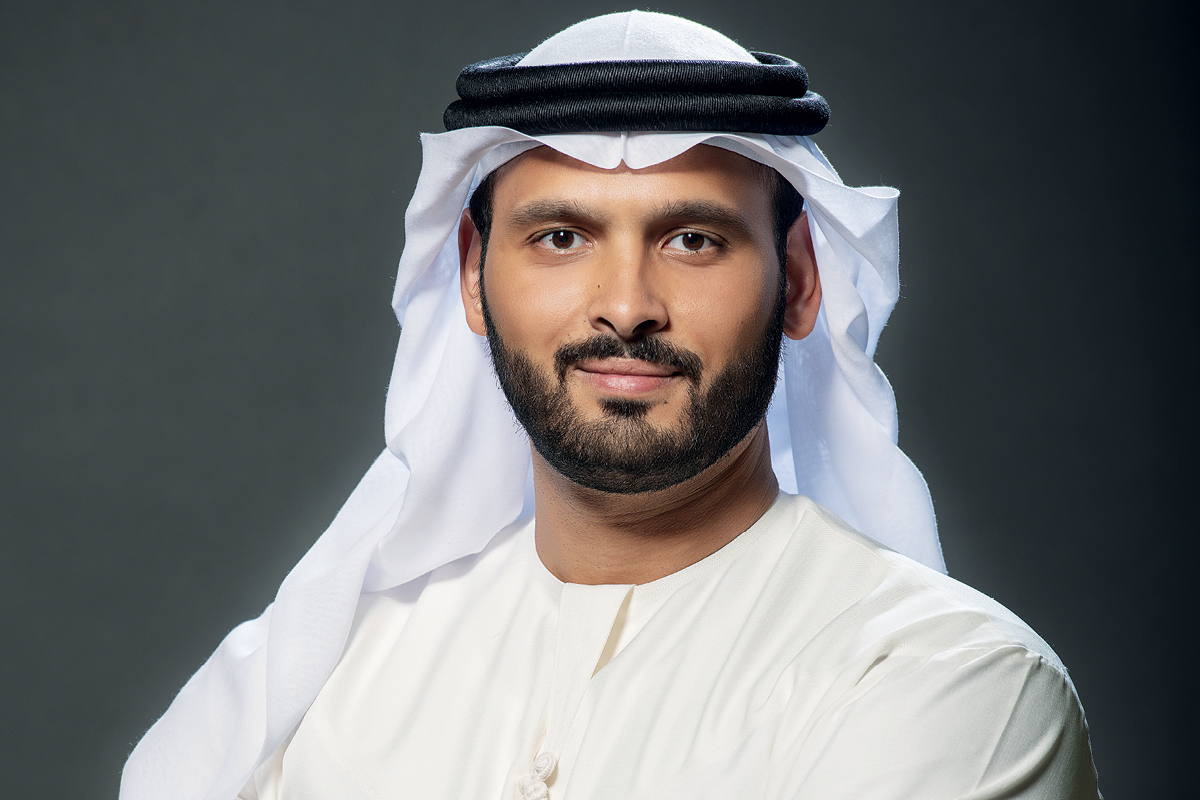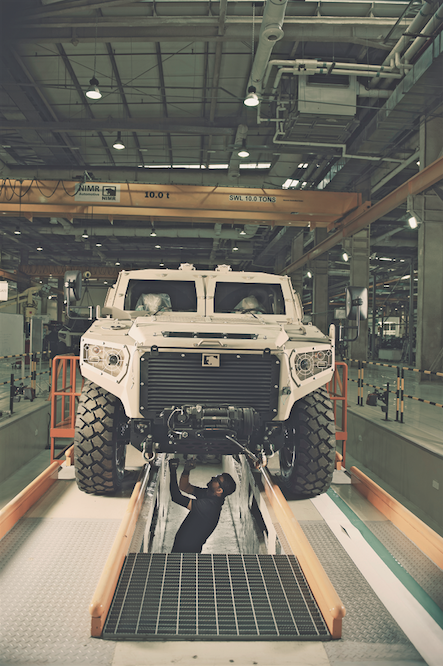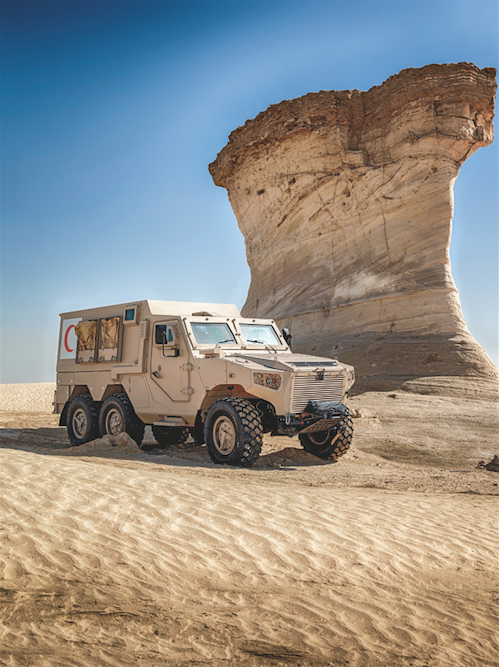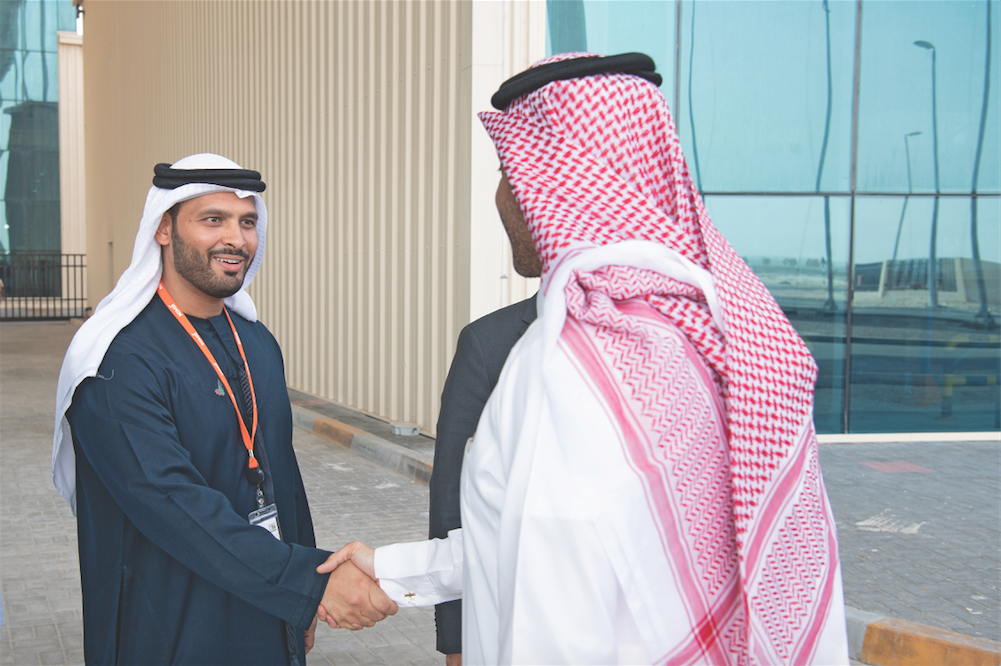The attack was as fierce as it was sudden. In early 2017, an improvised explosive device had just detonated near a Mine-Resistant Ambush Protected (MRAP) vehicle, scorching the exterior. All four tyres were punctured, and the exterior was damaged and dented.

However, none of the 56 rounds of accompanying fire that hit the truck was able to penetrate its armour or its windshield, and the driver managed to shuttle his Emirati team back to base. Everyone in the truck survived the attack.
The Jais MRAP manufactured by the Abu Dhabi-based armoured vehicle producer NIMR could have been repaired and redeployed but instead, it was shipped back to Abu Dhabi to be displayed at that year’s International Defence Exhibition and Conference (IDEX).

Among all the polished, unused machinery on display, NIMR’s vehicle was the only one that was battle-proven – the only one with a story.
NIMR walked away from IDEX with a pocketful of massive contracts, including the largest contract of the event to supply 400 armoured vehicles to the UAE Armed Forces – a deal worth AED2.42 billion (more than €603 million).
“It’s only because our vehicles have actually been deployed in active and live missions and given us invaluable feedback that we have been able to develop our vehicles to meet the diverse array of specifications demanded by our clients,” says Khaled Al Zaabi, Chief Commercial Officer of NIMR.
“Our vehicles fulfil multiple mission requirements that the customer may need, from local internal security to command and control requirements to humanitarian or medical requirements, like the ambulances we produce. We also have combat vehicles.
“The breadth of the missions that we fulfil is vast, and depending on what the customer requires, we can meet almost any requirement within a four-by-four or six-by-six platform.”
Engineering excellence
Before joining NIMR in late 2019, Khaled spent 11 years as Vice President of Mubadala Investment Company, Abu Dhabi’s equivalent of a sovereign wealth fund, including four years leading the company’s aerospace engine manufacturing efforts.
“I was working with Rolls-Royce and GE to establish a multi-billion AED investment that would develop the most advanced turbofan aerospace engine manufacturing capabilities. That, plus my years executing strategies for growth, turnarounds and divestments at Mubadala, prepared me to develop strategies and manage operations at NIMR during this crucial growth period,” Khaled says.

His first task upon arriving at the company was to determine what capabilities would give NIMR a competitive edge against other major armoured vehicle exporters. “The trick was to find a balance between capabilities and commercial attractiveness because you can have the most advanced vehicle, but if it’s too expensive, no one’s going to buy it,” he says.
Fortunately, NIMR has been able to rely on its strong engineers and designers – a team painstakingly assembled over the past 20 years – to pinpoint this balance of priorities.
“There is a common misconception that armoured vehicles are just big blocks of steel and are simple to manufacture. Even some of our customers make this mistake when trying to compare our product to our competitors’.
“But these pieces of equipment are more than just the sum of their parts. There is an incredible amount of research and technology that goes into each design. Every country has different terrain, has a different mission need, so of course it’s not a single glove that fits all.
“At NIMR, one of the main things we pride ourselves on is that we have such a strong in-house engineering team with extensive R&D capabilities that we are able to develop vehicles and solutions for any type of customer. For all of our upcoming vehicles, we are upping our protection levels. We are upping our mobility. We’re upping our payload requirements, and we’re upping our commercial attractiveness from a price perspective.”
Outperforming the competition
This delicate balancing act is paying off, as NIMR has attracted clients in Eastern Europe, Latin America, Northern Africa, and across the Middle East.
The company is also looking to establish joint ventures with manufacturers outside the UAE to produce its newest vehicles and distribute them globally. Khaled says NIMR’s blossoming success as an exporter can be attributed to the high standards set by its earliest client – the UAE government.
We will come out of this phase stronger, wiser and much hungrier to grow the business.
“It’s also worth noting that the local customer is very demanding. The UAE customer demands the highest quality and service, which has actually allowed us to really push the envelope internally to develop vehicles that would satisfy their requirements. These efforts set us up very well to be globally competitive and provide capabilities that are globally attractive,” he says.
In fact, NIMR vehicles have begun to outperform those of its competitors in formal trials, a feat that Khaled says “honestly cannot be underestimated”. But to Khaled, the personal satisfaction he receives from NIMR’s rising prominence on the world map is not the primary driver of his work. His motivation comes from a higher place.

“The most meaningful thing about my work is that I get to serve my country,” he says. NIMR is one of a number of businesses supported by the Emirati government with the aim of developing local industries beyond oil and gas.
“We always use the local market as a launching platform that will ultimately help kickstart certain industries, and then we leverage that to become a global player in the long run,” Khaled explains.
“This project fulfils multiple requirements for the country, whether domestic technology, economic diversity or strategic capabilities – it hits all these fundamental requirements for the UAE. Being a part of it is truly an honour and a humbling experience.”
All of NIMR’s successes to date will serve as a foundation for the rebuilding period that will come after the company emerges from the COVID-19 crisis, which has strained its global supply chain and suppressed demand for vehicles.
“We are taking this opportunity to look inward, to improve our capabilities and the way we work,” he says. “I’m confident that we will come out of this phase stronger, wiser and much hungrier to grow the business.”


